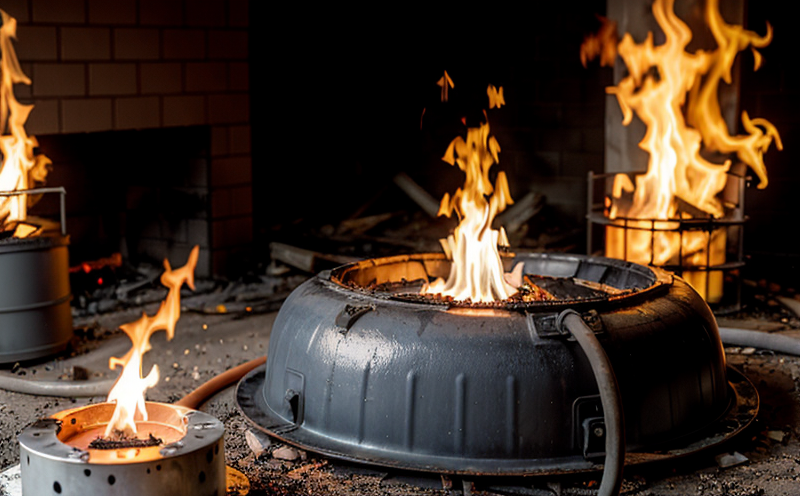EN 45545-2 Fire Safety Testing of Seals and Gaskets
The EN 45545 series is a suite of European standards that address fire safety in railway applications. Specifically, EN 45545-2 focuses on the flammability requirements for seals and gaskets used in railway vehicles. This standard ensures that materials employed do not contribute to the spread or intensification of fires within the vehicle's interior.
The testing outlined in EN 45545-2 is crucial for ensuring the safety of passengers, crew, and equipment in case of fire emergencies. The tests are designed to evaluate how the seals and gaskets react under high heat conditions, which can occur during a fire scenario. This includes assessing whether these components ignite easily, produce toxic smoke, or release harmful fumes.
The standard specifies that materials must not only pass flame spread tests but also demonstrate resistance to the temperatures typically encountered in railway fires. The tests are conducted using standardized apparatus and procedures defined by EN 45545-2 itself. These include the pinhole test, which checks for any holes or tears in the material after exposure to heat, and the thermogravimetric analysis (TGA), which measures weight loss during heating.
For quality managers and compliance officers involved with railway vehicle manufacturing, understanding these requirements is essential. They must ensure that all seals and gaskets used comply not only with EN 45545-2 but also other relevant standards such as ISO or ASTM if applicable to their specific market. This ensures the highest level of safety while maintaining regulatory compliance.
From an R&D engineer perspective, knowing the exact parameters involved in these tests allows them to design materials that meet both functional and fire safety needs. For procurement teams, specifying EN 45545-2 as a requirement helps guarantee that suppliers deliver products capable of meeting stringent safety standards.
- Pinhole Test: Evaluates the integrity of the seal material after heat exposure.
- Thermogravimetric Analysis (TGA): Measures weight loss of materials under specified temperature conditions.
- Fuel Ignition Test: Determines if the material ignites when exposed to specific fuel sources at defined temperatures.
Eurolab Advantages
At Eurolab, we bring together expertise and experience in materials science, chemical analysis, and safety testing. Our team of specialists ensures that every test conducted adheres strictly to the requirements set forth by EN 45545-2. We utilize state-of-the-art equipment and follow rigorous quality control processes to deliver accurate results.
Our facilities are equipped with advanced instrumentation capable of simulating real-world fire conditions, allowing us to provide precise evaluations of seal and gasket performance. By partnering with Eurolab, clients can benefit from our deep understanding of railway safety standards and the ability to interpret complex test data effectively.
We offer comprehensive support throughout the testing process, from initial consultation on material selection to detailed reporting after completion. Our services not only meet but exceed industry expectations, ensuring that all stakeholders have confidence in the reliability and accuracy of our results.
Quality and Reliability Assurance
- We maintain strict adherence to international standards such as EN 45545-2, ISO, ASTM, and others relevant to your specific application.
- All our testing equipment is calibrated regularly against known reference materials to ensure consistent and accurate results.
- Our laboratories are accredited by recognized bodies ensuring that all tests conducted here comply with global best practices.
- Data accuracy and reproducibility are paramount; we employ robust quality assurance protocols at every stage of the testing process.
International Acceptance and Recognition
The EN 45545-2 standard is widely recognized across Europe and beyond for its stringent requirements regarding fire safety in railway applications. Many countries have adopted this standard as part of their national regulations, ensuring uniformity and comparability among different markets.
Compliance with these standards enhances the reputation of manufacturers who adhere to them, providing peace of mind to customers knowing that products meet rigorous international benchmarks for safety and performance.





